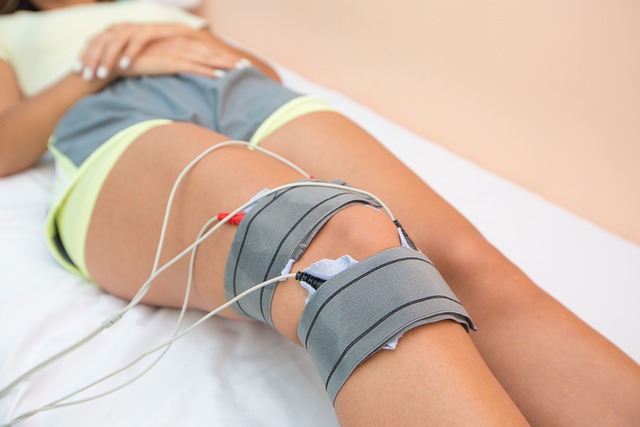What to do after a physiotherapy session?
Physiotherapy has helped many by providing them with the strength and form they lacked before their sessions. Many reasons can cause you to take regular physiotherapy sessions, but it is important to know what to do after you are done with your sessions.
Common misconception
People think that after taking their sessions, they can head home and return to their lazy, sedentary lifestyle without putting in any effort. However, this can hinder and even reverse your progress. You can face dire consequences if you stop taking care of yourself and the affected body part after your sessions. First, let us introduce you to what physiotherapy is and how it helps over time to strengthen and fix the problem you have been suffering with.
What is physiotherapy?
Physical therapy, also known as physiotherapy, is a field of medical science in which physiotherapists help promote strength and restore your health with the help of physical examination and physical therapy. Physiotherapy can be helpful for countless diseases involving damaged or weak bones, joints, and soft tissue.
Physiotherapy patients
Mostly, people who attend physiotherapy sessions are of older ages as they tend to get fractures or have weaker bones and require help in assisting them. Regular physiotherapy sessions can help treat Parkinson’s disease, arthritis, strokes, and neuropathy. People who are involved in accidents that result in severe injuries such as nerve compression or muscle sprain consult a physiotherapist, as it proves to be beneficial for them.
What is post OP physiotherapy?

Another important form of physiotherapy is after a person has undergone an operation. It is called post OP physiotherapy and is crucial for your improvement. You can visit Studioathletica clinics to get quality physiotherapy sessions.
How does physiotherapy help?
Physiotherapy focuses on exercises that promote an increase in strength and mobility. Physiotherapists are trained to examine the patient and choose suitable exercises and movements that will help strengthen their body structure. It is also used to restore and promote growth. Physiotherapists use rehabilitation, injury prevention, and elements like health and fitness to help you get back to your healthy self.
Aftercare
Many people mistake leaving all the exercise their therapist has advised for them. They take their sessions, go home and forget all about it. It is a common misconception to think that your strengthening and healing process has ended with the therapy sessions, but the reality is that it has just begun. It is important to regularly work out and walk to get your bones and muscles used for the movement. Resting for long periods will worsen your situation, and you will be back at square one in no time. Here are the things you should do after attending a physiotherapy session:
Working out
If you have a gym nearby, then it is advised to buy yourself a membership, get in touch with a trainer, and begin exercising daily. However, you must let your trainer know about your physiotherapy sessions so that he can curate the perfect plan for you to avoid exhaustion. Taking it slow and steady is key, but don’t get too comfortable and provide yourself with light challenges every day to improve your overall body strength.
Hydrating yourself
It is commonly said that patients often feel a sudden relief from their pain after their physiotherapy session. It is no secret that your body is visibly stronger after the session compared to before. However, it is important to keep yourself hydrated to maintain stamina levels, especially after a productive physiotherapy session. The professionals advise drinking an adequate amount of water after sessions as it helps your body stay balanced and healthy.
Using heat
Many physiotherapists suggest that depending on your pain level or discomfort; you should apply heat to the affected area. Heat is an excellent way to relax your stiff muscles and avoid them getting tensed. This helps deal with the fatigue and tensed muscles you might face after your sessions. Taking good care of your body after sessions will ensure steady progress.

Taking a rest day
If you feel like you have outdone yourself and need some rest, this is a good indicator of taking a day off. Your muscles and mental well-being require a day of resting on the sofa and reading to help recover you from exercising and moving around. However, you must be mindful not to overdo it as it may hinder your progress and cause an increase in your pain.
Conclusion
Due to having little to no resources, many people do not realize that there are some key steps to take after attending their physiotherapy sessions. It is important to take care of your body and consult your physiotherapist whenever you face confusion. Here we have provided helpful tips to help you achieve a speedy recovery.
What to do after a physiotherapy session?
Physiotherapy has helped many by providing them with the strength and form they lacked before their sessions. Many reasons can cause you to take regular physiotherapy sessions, but it is important to know what to do after you are done with your sessions.
Common misconception
People think that after taking their sessions, they can head home and return to their lazy, sedentary lifestyle without putting in any effort. However, this can hinder and even reverse your progress. You can face dire consequences if you stop taking care of yourself and the affected body part after your sessions. First, let us introduce you to what physiotherapy is and how it helps over time to strengthen and fix the problem you have been suffering with.
What is physiotherapy?
Physical therapy, also known as physiotherapy, is a field of medical science in which physiotherapists help promote strength and restore your health with the help of physical examination and physical therapy. Physiotherapy can be helpful for countless diseases involving damaged or weak bones, joints, and soft tissue.
Physiotherapy patients
Mostly, people who attend physiotherapy sessions are of older ages as they tend to get fractures or have weaker bones and require help in assisting them. Regular physiotherapy sessions can help treat Parkinson’s disease, arthritis, strokes, and neuropathy. People who are involved in accidents that result in severe injuries such as nerve compression or muscle sprain consult a physiotherapist, as it proves to be beneficial for them.
What is post OP physiotherapy?

Another important form of physiotherapy is after a person has undergone an operation. It is called post OP physiotherapy and is crucial for your improvement. You can visit Studioathletica clinics to get quality physiotherapy sessions.
How does physiotherapy help?
Physiotherapy focuses on exercises that promote an increase in strength and mobility. Physiotherapists are trained to examine the patient and choose suitable exercises and movements that will help strengthen their body structure. It is also used to restore and promote growth. Physiotherapists use rehabilitation, injury prevention, and elements like health and fitness to help you get back to your healthy self.
Aftercare
Many people mistake leaving all the exercise their therapist has advised for them. They take their sessions, go home and forget all about it. It is a common misconception to think that your strengthening and healing process has ended with the therapy sessions, but the reality is that it has just begun. It is important to regularly work out and walk to get your bones and muscles used for the movement. Resting for long periods will worsen your situation, and you will be back at square one in no time. Here are the things you should do after attending a physiotherapy session:
Working out
If you have a gym nearby, then it is advised to buy yourself a membership, get in touch with a trainer, and begin exercising daily. However, you must let your trainer know about your physiotherapy sessions so that he can curate the perfect plan for you to avoid exhaustion. Taking it slow and steady is key, but don’t get too comfortable and provide yourself with light challenges every day to improve your overall body strength.
Hydrating yourself
It is commonly said that patients often feel a sudden relief from their pain after their physiotherapy session. It is no secret that your body is visibly stronger after the session compared to before. However, it is important to keep yourself hydrated to maintain stamina levels, especially after a productive physiotherapy session. The professionals advise drinking an adequate amount of water after sessions as it helps your body stay balanced and healthy.
Using heat
Many physiotherapists suggest that depending on your pain level or discomfort; you should apply heat to the affected area. Heat is an excellent way to relax your stiff muscles and avoid them getting tensed. This helps deal with the fatigue and tensed muscles you might face after your sessions. Taking good care of your body after sessions will ensure steady progress.

Taking a rest day
If you feel like you have outdone yourself and need some rest, this is a good indicator of taking a day off. Your muscles and mental well-being require a day of resting on the sofa and reading to help recover you from exercising and moving around. However, you must be mindful not to overdo it as it may hinder your progress and cause an increase in your pain.
Conclusion
Due to having little to no resources, many people do not realize that there are some key steps to take after attending their physiotherapy sessions. It is important to take care of your body and consult your physiotherapist whenever you face confusion. Here we have provided helpful tips to help you achieve a speedy recovery.




